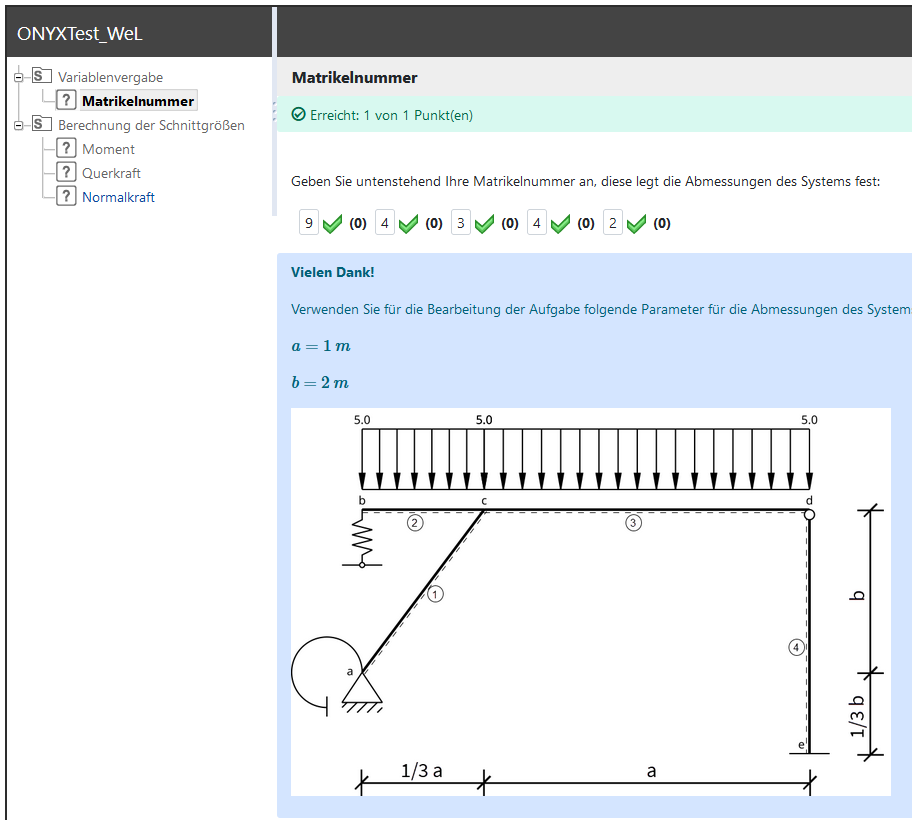Statics and simulation
Structural analysis as the study of the equilibrium of static forces, the knowledge of structural methods for the calculation and analysis of structures, the basic understanding of the load transfer in a structure and the estimation of a good degree of structural idealization are basic prerequisites for good modelling in a framework program or finite element program and a basic requirement for the planning and repair of buildings and their supporting structures.
The I4S Institute deals with plane and spatial models, linear and non-linear problems, mechanical and dynamic problems.
In teaching, the focus is initially on plane structural analysis and the decomposition of load-bearing structures. The principle of virtual forces to determine deformations and the force magnitude method for calculation of static indeterminate systems are taught, as well as the schematized three-moment equation. The general displacement method and computer-oriented structural analysis are offered as compulsory options. The Bachelor's course is limited to static methods and linear structures.
The Master's course in Structural Engineering deals with stability, plasticity and other non-linear material properties. Computer-oriented structural analysis and non-linear calculation algorithms play a central role here. Static and kinematic methods are used.
Structural frame & truss analysis program sStatics

To support teaching, the I4S Institute is developing a framework program for plane beam structures to calculate internal forces and deformations with an appealing user interface. The Python programming language is used in conjunction with the PyCharm programming environment. The calculation is based on the general displacement method. The application is designed as a web application with a user interface using the Dash Framework. Although there are already numerous commercial programs of this type, none of them are tailored to the teaching of construction mechanics; in most cases, the programs are very extensive and complex, making it difficult to concentrate on the essentials.
The aim of the framework program is not only to present students with ready-made solutions, but also to provide interim results and appealing presentations of results, depending on the calculation method. This allows students to set their own exercises and challenges.
Bachelor's and Master's theses are regularly involved in the development of the program. If you are interested, please contact us!
Task-pool in ONYX

Online tasks are created in the OPAL / ONYX system to support exam preparation, particularly in the Bachelor's degree. The tasks are sorted by subject area and level of difficulty so that students can select suitable tasks based on their experience. The ONYX task pool is being developed as part of the FAssMII project, which also aims to establish an ONYX task pool for the field of mechanics. The OPAL / ONYX system is used at universities throughout Saxony and teachers and students can contribute to this task pool and benefit together.
If you are interested in published tasks in the ONYX task pool and participation in the mechanics network, please contact us!
